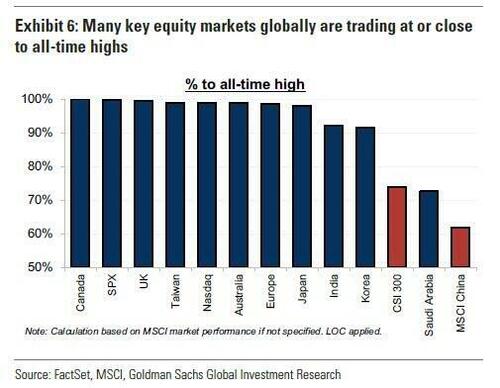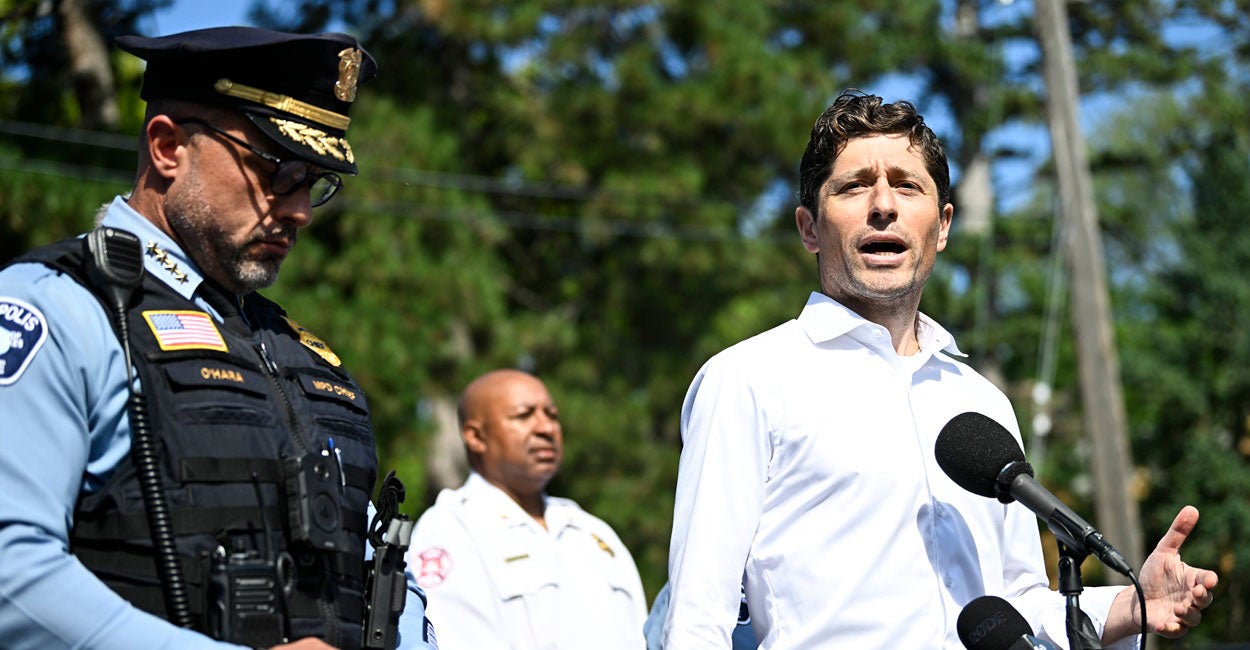G7 Summary; Russia Alleges Plot by Brits and Ukraine to Drag America Into War
Source: The Iron Wire
(0:00 - 1:30) I'm Hannah Bern and I'm Will Dove, and these are the top stories for today, Wednesday, June 18th. A summary of the G7 summit in Alberta, which ended yesterday. The Russian intelligence agency exposes plans by the UK and Ukraine to push America into war with Russia, and a UN report proposes abortion as the solution to declining birth rates. The recent G7 summit, hosted in Kananaskis, Alberta, was intended to focus on key economic and security issues, but was largely upended by escalating conflict in the Middle East and the abrupt departure of U.S. President Donald Trump. The summit brought together leaders from Italy, the United States, France, Germany, the United Kingdom, Canada, and Japan. President Trump's sudden departure, cited as a result of rapidly evolving hostilities between Israel and Iran, was met with diplomatic calm by his counterparts. Carney stated he fully understood Trump's decision, while French President Emmanuel Macron criticized media insinuations that the summit had become a de facto G6, as disrespectful. The summit's agenda was sidelined by the intensifying Israel-Iran war. All G7 members issued a joint communique urging de-escalation of hostilities in the Middle East, including a ceasefire in Gaza, but stopped short of specifically demanding a ceasefire between Israel and Iran. (1:31 - 3:56) On Ukraine, Canadian aid was announced for President Volodymyr Zelenskyy, though a hoped-for strong G7 statement of support was reportedly watered down due to U.S. objections. Carney denied a lack of consensus and referenced supportive language in the chairman's summary, which endorsed President Trump's efforts to achieve a just and lasting peace in Ukraine and called for Russia to agree to a ceasefire. The summit also threatened increased financial sanctions, a measure Trump has reportedly resisted. Indian Prime Minister Narendra Modi's attendance brought domestic controversy for Carney, with tensions rising among Sikh Canadians. However, the two countries agreed to restore diplomatic services after mutual expulsions due to Indian agents' alleged involvement in the assassination of Hardeep Singh Nijjar, a prominent Sikh separatist and leader in the Khalistan movement, who was assassinated in Surrey, British Columbia, two years ago. Despite the disruptions, Carney managed to secure agreements on artificial intelligence, quantum computing, migrant smuggling, and critical minerals, pursuing what Ruddick described as a concise, detailed, action-oriented approach, reflective of his banking background. An agreement to boost global cooperation on wildfires, avoiding the topic of climate change, was singled out as a focus on outcomes over ideology. On trade, the closely watched sit-down between Trump and Carney ended with both sides reporting progress, but no final deal. The G7 also saw Carney promoting Canada's economy and seeking to reduce reliance on U.S. imports, while European officials indicated a pending defense procurement agreement with Canada. Trump, for his part, was clear about his desire for trade deals, celebrating progress with British Prime Minister Sir Keir Starmer, but failing to secure breakthroughs with Canada or Japan. Trump's own Liberation Day tariffs are set to resume on July 9 unless new deals are secured. Russia's Foreign Intelligence Service, SVR, has issued a stark warning, claiming that British and Ukrainian actors are preparing provocative false flag operations in the Baltic Sea. (3:57 - 4:49) According to the SVR, these plots are intended to manipulate President Donald Trump into escalating military actions against Russia. The allegations detail two specific scenarios. The first scenario would involve Ukrainian-supplied Soviet or Russian torpedoes purportedly exploding near a U.S. naval vessel in the Baltic. A malfunctioning torpedo would then be discovered and used to implicate Russia in an alleged attack. The second scenario describes Ukrainian-supplied Soviet or Russian mines being deliberately retrieved from the Baltic Sea and presented as evidence of a Kremlin-backed effort to disrupt international shipping. These provocations are reportedly motivated by the February announcement from U.S. Secretary of Defense Pete Hegseth, who stated that the U.S. would not extend NATO's Article 5 mutual defense guarantee to member country troops deployed to Ukraine. (4:50 - 5:21) The SVR asserts that this policy shift initially thwarted earlier plans to provoke a U.S.-Russian confrontation over NATO troop deployments to Ukraine, prompting a pivot toward orchestrated incidents in the Baltic. The SVR's warning highlights the Baltic Sea's status as a virtual NATO lake, with Finland and Sweden now formal members of the alliance. The agency contends that it would be implausible for Russia to conduct undetected offensive operations in this heavily monitored region, even if it had the intent to do so. (5:21 - 7:16) A series of background briefings referenced by the SVR trace the evolution of this narrative, from earlier warnings about British sabotage of potential U.S.-Russian negotiations, to regional tensions involving Estonia and Finland, and ultimately to the current diplomatic deadlock over Ukraine. According to the SVR, the U.S. faces a critical choice either pressure Ukraine to meet Russian conditions for peace or increase its own involvement in the conflict. The report also notes that speculation exists about Trump's prior knowledge of Ukrainian drone strikes against Russia, as well as allegations of duplicitous diplomacy involving Iran. Some within Russia now suspect Trump could be complicit in false flag operations, despite public displays of camaraderie between Trump and Putin, as evidenced by their recent phone call. The SVR suggests it is imperative for Trump to publicly commit to not escalating against Russia if false flag attacks occur, mirroring Hegseth's preemptive move regarding NATO troop deployments. Critically, the SVR questions whether Trump is aware of these alleged plots, as it is unclear if he has been briefed on their warning or if he can rely on advisers to inform him. As a result, the agency warns that Trump could unwittingly be manipulated into a dangerous escalation with Moscow. A new report from the United Nations Population Fund, UNFPA, has drawn sharp criticism for its patently ludicrous stance on the global fertility crisis. According to the report, titled The Real Fertility Crisis, The Pursuit of Reproductive Agency in a Changing World, the UNFPA claims the heart of the crisis is not a shortage of births, but a lack of reproductive freedom, a term that includes access to abortion and contraception. (7:16 - 7:54) The document has sparked backlash among critics who argue that promoting abortion as part of the solution to demographic decline is irrational and counterproductive. The report is based on a YouGov survey of 14,000 adults across 14 countries, including South Africa, Indonesia, Nigeria, Morocco, Brazil, South Korea, Thailand, Mexico, India, and Hungary. Key findings reveal that 39 percent of respondents cited financial concerns as limiting their family size, while 19 percent pointed to fears about the future. (7:54 - 9:01) Nearly a third reported experiencing an unwanted pregnancy. Only 37 percent said they expected to have the number of children they wanted, while almost one in four said they could not have a child when they wanted one. The report also notes that one in four people live in a country where the population size has already peaked, leading to aging societies, shrinking workforces, and increased fiscal strain. Despite recognizing the demographic decline, the UNFPA shifts focus swiftly from a global fertility crisis to what it calls the real crisis, insufficient reproductive agency. The agency defines this as a person's ability to make free and informed choices about sex, contraception, and starting a family, if, when, and with whom they want. The solutions proposed include more sex education in schools, expanded access to contraceptives and abortion, adoptions by same-sex couples, and the dismantling of traditional gender norms. (9:02 - 10:26) The report is criticized for endorsing the same measures that have contributed to declining birth rates, rather than promoting policies that encourage larger families. The Catholic News Agency reported that the UNFPA also criticized policies that incentivize having children, claiming that tax credits for parents may stigmatize beneficiaries and that incentives for larger or smaller families could increase vulnerability to coercion. Critics have pointed out the irony and contradictions in the UNFPA's report. While it acknowledges the dramatic drop in birth rates, it promotes solutions that include abortion. Despite evidence that countries like China, after enforcing the one-child policy and resulting in over 336 million abortions, now face severe demographic crises. The debate over the report underscores the widening ideological divide on how to address demographic decline. While some nations, like Hungary and South Korea, are actively incentivizing families to have more children, mainstream Western responses tend to focus on reproductive autonomy, often in direct opposition to policies that encourage childbirth. I'm Hannah Bern. And I'm Will Dove. And those are the top stories for today, Wednesday, June 18th.









